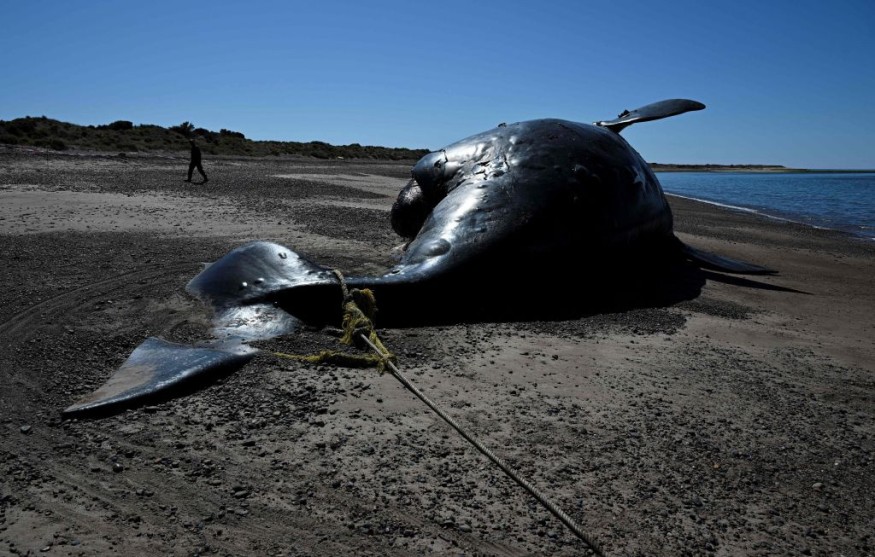Dead whales have been reported along New Jersey beaches in the past several weeks, with the latest of these whale strandings occurring in Brigantine last week.
Local authorities have attributed the whale deaths to either vessel strikes or fishing gear entanglement; human activities considered by the US government as the main cause of whale deaths and other large marine animals.
In previous related incidents in New Jersey, marine conservation groups have blamed floating offshore wind farms, which consists of wind turbines that emit sound waves under water.
The group is denouncing the large structures erected on the seafloor, arguing that it can disturb marine ecosystems.
While the US also confirms turbine's disruptive capabilities, there is still no evidence linking them to whale deaths.
Earlier in January, a demonstration group called Protect Our Coast NJ, consisting of community members and visitors, denounced the installation of the turbines off the New Jersey shoreline.
The growing concern in the Garden State comes after multiple whale strandings since early December last year.
Amidst the claims, experts reportedly believed that there are other causes other than the wind energy industry.
New Jersey Dead Whale

Preliminary assessment of the humpback whale found dead in Brigantine showed it was likely killed by a vessel, according to the Marine Mammal Stranding Center, as cited by Patch Media, an American local news and information platform.
According to the center's statement, the results remain unconfirmed and will be verified through lab analysis in the coming weeks.
Still, the unconfirmed results indicated that the whale suffered from blunt trauma injuries, which are consistent with related physical damaged caused by a vessel strike.
In addition, the large creature had injuries and hemorrhaging on its head and thoracic region, as wall as on the right side and the pectoral flipper, as cited by the US news site.
The findings also said that the female whale was also in good health condition before its mysterious death, mainly due to the thickness of its blubber and stomach filled with partially-digested fish.
Vessel Strike Threat
The animal was added to the study about humpback whale unusual mortality event, which pertains to unexpected strandings.
The mysterious phenomenon has been occurring along the Atlantic coast since January 2016.
In relation to the incident, Lauren Gaches, spokesperson for the National Oceanic and Atmospheric Administration (NOAA), stated the said period when the unusual mortality event of humpback whales started pre-dates offshore wind farm preparation activities across the region, as cited by Patch Media.
This means that the New Jersey whale deaths have occurred long before wind turbines were installed off the coast.
The NOAA Fisheries emphasized that any type of vessels, from large ships to jet skis, can have the potential to hit nearly any marine species.
Furthermore, the US agency added that the most reported collisions involve large whales, as well as other animals like seals or sea lions.
Meanwhile, there is growing concerns and inquiries regarding whales and other large cetaceans possibly encountering the lines and electrical cables of floating offshore wind farm, according to the Bureau of Ocean Energy Management (BOEM), which is under the U.S. Department of the Interior.
© 2025 NatureWorldNews.com All rights reserved. Do not reproduce without permission.





